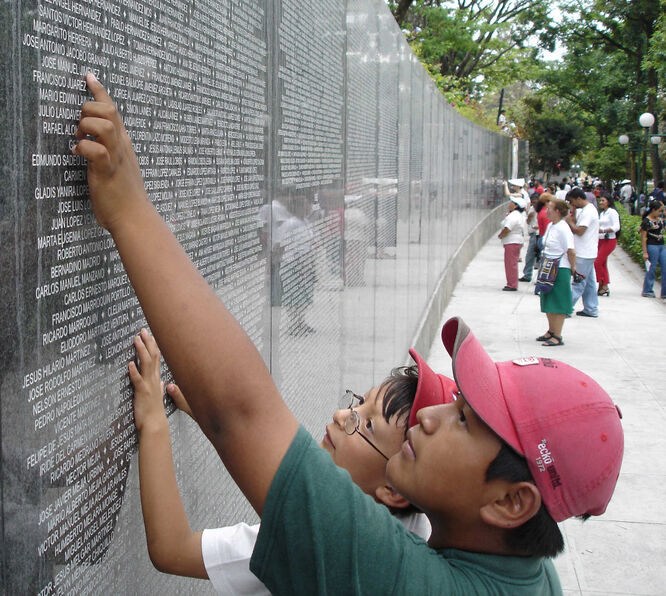El Salvador: Patriots and Poverty
By Rick Steves
My business focuses on Europe, but occasionally other countries lure me away. In 2005, I accepted an invitation to go to San Salvador, the capital of El Salvador, for the 25th anniversary of the assassination of Archbishop Oscar Romero.
I was raised to be proud of Nathan Hale and Patrick Henry and Ethan Allen — those American patriots who wished they had more than one life to give for their country. In my travels, I’ve learned that people like those heroes are a dime a dozen on this planet. Recognizing that is not unpatriotic — it’s simply true. Every country and ethnicity has its own Nathan Hales, and as I travel, I gain empathy for struggling people by learning about their own heroes.
In El Salvador, I marched with a crowd as they remembered their martyred hero. Romero, who was a Salvadoran version of Nathan Hale, had stood up to what the people had considered American imperialism. The march passed a long shiny black monument (that looked a lot like our Vietnam memorial) covered with countless names — each a casualty of a war that their loved ones believed was fought against American interests and American-funded troops in their country.
During that visit, I saw that living in San Salvador was no picnic. In the last several decades it had endured a civil war and the collapse of its coffee industry — coffee fell from 50 percent of the country’s export earnings to about 3 percent. San Salvador had the highest homicide rate of any city in the Western Hemisphere and gang violence was on the rise. Nice homes had fenced-in and fortified front yards, and in the wealthy neighborhoods, each street and every sizable business posted an armed guard.
In 2001, El Salvador had suffered two devastating earthquakes that killed 2,000 people. A quarter of the private homes in the country had been destroyed or badly damaged, leaving 1.5 million homeless. Seismic safety is a luxury that only the privileged can afford. (My hometown north of Seattle had required that I spend tens of thousands of dollars to reinforce my travel business’ office building for earthquakes. I chafed at the cost. But I was upstairs in that building when a quake hit the Seattle area that same year, and we rode it out safely.) Unfortunately, the best that those living in a San Salvador shanty town could do for protection was to live in what they called “mini-skirt housing” — cinderblocks for the lower half of the walls, along with light corrugated tin on the walls and on the roof.
In the wake of the earthquake devastation, Salvadorans saw capitalists who claimed to be compassionate roll up their sleeves and speed to the rescue. Shirt manufactures moved into the earthquake-devastated area to provide jobs...on condition that the government allowed them to lower the minimum wage from $144 a month to $85 a month.
Traveling to places recovering from war and natural disasters, I’m struck at how poor people don’t despair. Could it be, the poorer you are, the less you lose in a natural disaster? Perhaps poverty leaves you no time to get down...you’re too busy surviving.
I visited with Beatriz and her daughter Veronica, who lived in a shack on El Salvador’s minimum wage. The place was as clean and inviting as a tin-roofed mud shack with a dirt floor could be. Beatriz told of raising a family through a war and on $140 a month.
About her life, she said, “My house becomes a lake in the rainy season. Still, we are thankful to have this place. Our land was very cheap. We bought it from a man receiving death threats. He fled to America. While we make $140 a month in the city, the minimum in the country is much less — only $70 a month. To survive there, you need a home that is already in your family. You have one light bulb, corn, and beans. That is about all. Living on minimum wage is more difficult now than before.”
On that visit to El Salvador, I was what locals joked about as a “round-trip” revolutionary — someone who goes down there...but only with a round-trip ticket. Still, having had the opportunity to sit and talk with Beatriz and Veronica, even that round-trip revolutionary flew home with an indelible understanding of the human reality of that much-quoted statistic that “half of humanity is trying to live on $2 a day.”

